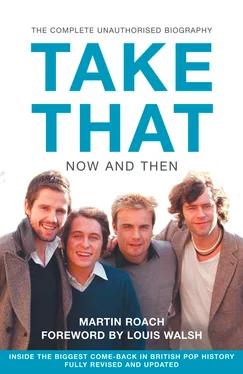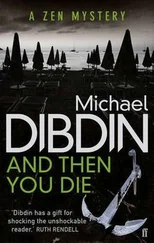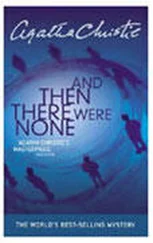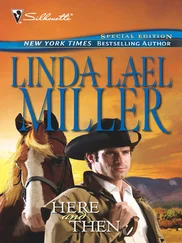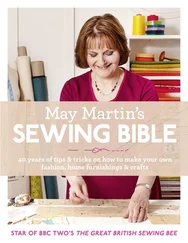So Nick took the tracks to his boss and this time Korda was hooked by one track in particular: ‘I remember listening to “A Million Love Songs” and thinking That’s a smash record ,’ says Korda. ‘Nigel Martin-Smith had a very clear vision of what to do and I thought Gary’s songs were really very good. “A Million Love Songs” had that sax solo, there was something going on in there from chord progressions to harmony, melody, the whole feel. Yet what people won’t realise is that Take That were actually a bit of a joke at the time in the A&R community, and in fact when Nick brought the tape into that meeting, everybody kind of laughed. But Nick took it seriously.’
Nick agrees: ‘As we were going through the process of signing the band, everyone is telling me that I’m an idiot. “This is going to be your first signing for RCA, Nick, and you’re gonna sign this joke group that everyone has turned down!” Hearing all this, I started to get cold feet; I started to imagine how it would look if it all failed, the losses we’d make and so on. I mentioned this to Korda and he said a remarkable thing: “Look, if you sign them and they are successful, you’re a star and we’re all laughing because they’ll sell millions of records; and if they fail, you can blame me.” It was amazing. No one has ever brought that to light, Korda’s never mentioned that and it was unheard of for someone to put it like that. So we decided we’d sign them.’
The context for this relative scorn was that, for many, pop was dead. As mentioned earlier, Bros had ruled the pop world in the late Eighties and New Kids on the Block had taken over their crown shortly after, but since then many ears had either turned to the Pacific West Seaboard and the approaching juggernaut that was grunge, or lost a few brain cells in the rush for ecstasy and raving. Guitars and clubbing were back in, and a squeaky-clean boy band with carefully choreographed dance routines was in many ways the absolute antithesis of what was considered fashionable. ‘I remember the day we signed them,’ recalls Korda. ‘We got all these faxes from Sony and EMI basically saying, “What the fuck are you doing? You’re the laughing stock of the A&R community!” But you have to look at it from a social and cultural aspect, about whether there is a space with nobody in it. For example, years later I went to see Deep Purple and Lynyrd Skynyrd and you could see there was a huge audience for that style of music but there was nobody new doing it…and then I came across this band called The Darkness. Likewise, there was a phase in the early 2000s where there weren’t a lot of singer-songwriters around; there were a few “arty farty” singers and some quality people like Damien Rice, but for me there was no mainstream commercial singer-songwriter. Then I heard James Blunt. You look for a gap. That’s what we saw with Take That.’
Nick Raymonde and Korda both spotted this vacuum. ‘There were no boy bands, nobody was doing pop in that sense. It was the whole club/dance thing. Nick and I went to see Take That at a club called the Limelight in Shaftsbury Avenue where they did a three-song set which, to be honest, was so gay it was funny. They were still quite young at the time. They could obviously dance, the routines were fantastic, and I recall being struck by their complexions. It sounds funny but they were obviously going to be very photogenic. I could just see them all over magazines such as Smash Hits . If you look at any early photos, you have to agree there was a clear photogenic sensibility. I know this sounds silly, but even something as specific as their individual jaw lines, the way that their skin looked—Nigel Martin-Smith had done a good job of styling them too by then.
‘That night I remember thinking they could all dance really well, they’d got a good mix of looks and personalities, and they’d got a couple of songs that could be hits…Let’s go for it! That impulse was actually so unlike me, normally I’d strategise and make a decision on the music and the core creativity and suchlike.
‘As I say, in the very early days it was very gay. It was Nigel Martin-Smith who put it together and it was a market he thought they could tap into. When he came in, we had a long conversation about trout fishing, which I love—he’s a fisherman as well, so we talked about trout for most of the time. I got on with him really well. He had his own model agency in Manchester at the time, yet for this new boy band he had a really strong vision about what he wanted to do. This was crucial in the decision-making process, because it was evident that it wasn’t just five young boys new to the business, which has the potential to be a nightmare. I was effectively dealing with one grown-up man who knew exactly what he was doing.
‘I’d met the actual band on the night of the Limelight gig and then they came into the office and we chatted and talked. It was really evident that they were really good at gripping-and-grinning [meeting and greeting the general public], which, in a pop sense, is really important. At the Limelight and in our offices you could watch them working a room, chatting with women; they were great with women and they were really good with the media and they’d shake hands, they’d be interested and they’d turn up on time. I know it sounds silly but the ability for them to turn up at a TV studio at half six in the morning, looking bright, fresh, ready to go and cracking jokes when everyone else is blotchy-eyed, it was a hefty potential asset…in walk these five young kids and you could-n’t not look at them. You could see them being so attractive to women, which is an obvious bonus. Plus they were really respectful with their p’s and q’s. They were nice kids, well brought up, good characters. And, contrary to many reports, at that point they were certainly a gang, the five of them were together all that time, laughing constantly, mucking about. It was all new and fresh. They were a gang.
‘At this point we started to take them seriously. Nigel took us seriously and we finally agreed a record contract—it wasn’t a huge deal at all. It was in the region of about £70,000, which effectively committed RCA to a further investment of around £300,000 to £400,000 in terms of launching Take That. It was a pretty standard deal to be honest.’
Nigel and the boys’ hard work had finally paid off and they had secured themselves a major-label record contract. Take That joined a very ‘unique’ roster that boasted such diverse artists as Rick Astley, The Primitives, The Wedding Present and Pop Will Eat Itself. ‘I actually had several occasions where the paths of these polar opposites on our roster would cross,’ Korda told me.
‘High-profile new bands are usually signed in something of a fanfare, to start the PR machine rolling early. I remember the signing party for Take That very clearly. It was at the Hard Rock CafÉ. We all had a long chat and I started talking to Robbie. The rest of the band were all drinking Coca Cola and Robbie was like, “Can you shove a scotch in there please?” We had to look around to see where his manager and everyone else was before we gave him this sneaky drink. Bless them, they were under the thumb of Nigel in quite a big way, but in a positive sense; Nigel did a lot of good things for them and that was because he was very strong in knowing what he wanted to do and where he wanted to take it. He controlled the boys and I think their frustrations would later come through, but from a record label’s perspective, Nigel’s approach was a very positive aspect, because there was someone in charge, sailing the ship and knowing what to do.’
Take That’s first major-label single was ‘Promises’ in September 1991, exactly seven days before Nirvana’s seminal ‘Smells Like Teen Spirit’. One record changed the face of modern music, arts, TV, radio, music-industry strategies and pretty much every facet of popular culture; the other one didn’t. No prizes for guessing which one was Take That’s.
Читать дальше
